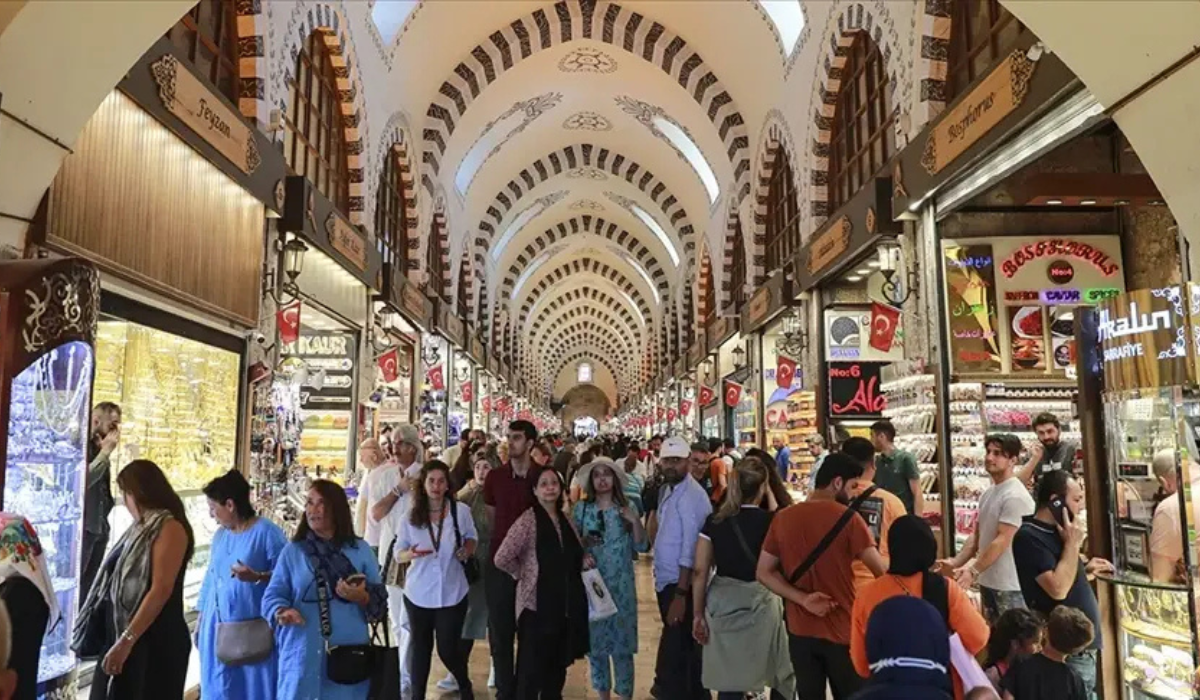Istanbul police and prosecutors have detained dozens of individuals in a sweeping money laundering operation centered on Istanbul’s historic Grand Bazaar, one of the city’s most iconic commercial hubs. This major law enforcement action uncovered a sophisticated financial network laundering over $250 million in illegal proceeds through shell companies and parallel ledgers tied to the trading of precious metals, foreign currency exchange, and illicit online activities.
Background and Investigation
The operation, coordinated by the Istanbul Chief Public Prosecutor’s Office and involving multiple waves of investigation and raids, targeted a criminal structure that utilized 93 shell companies under eight principal businesses operating within the Grand Bazaar. The illicit funds are primarily linked to illegal betting, forex investment fraud, cyber scams, and smuggling rings, which funnel proceeds from these criminal enterprises into the formal banking system to disguise their origin.
Authorities employed extensive technical and physical surveillance before simultaneous raids across 12 Turkish provinces, leading to the detention of 76 suspects in the latest phase, including high-profile individuals such as the vice chairman of the Grand Bazaar board of directors. This crackdown is part of ongoing efforts following three previous operations against the same network, signaling a sustained and comprehensive campaign against money laundering from criminal proceeds in the region.
Methods of Money Laundering
Investigations revealed the existence of a parallel accounting system used by the perpetrators to track and mask the flow of illicit money. This system coordinated money transfers through various financial channels, including traditional banks, currency exchange offices based in the Grand Bazaar, electronic money and payment service providers, and increasingly through cryptocurrency platforms.
Officials stated that the money laundering process integrated illegal earnings by moving them across multiple layers and disguising their origins. The network created fake accounts and utilized proxy bank accounts in the names of different individuals to transfer funds seamlessly. This layered structure helped convert criminal proceeds into seemingly legitimate capital, undermining the financial sector’s integrity and enabling the continuation of illegal activities under the guise of lawful commerce.
Scale and Impact
The illicit funds laundered through this network amounted to approximately 9 billion Turkish lira (around $250 million). Assets seized during the operation included 31 vehicles and 74 real estate properties estimated to be worth about 335 million Turkish lira ($7.93 million). Additionally, law enforcement confiscated precious commodities such as jewels and antiques from within the Grand Bazaar, reportedly valued at $30 million. These seizures underline the extensive scale and high-value nature of the illicit trade facilitated through the historic marketplace.
Experts emphasize that illegal betting and gambling operations alone generate billions annually in Turkey, predominantly funneled through illicit financial networks like those uncovered in the Grand Bazaar. Reports from the Turkish Financial Crime Investigation Board (MASAK) estimate that illegal betting in Istanbul yields roughly 400 billion lira ($11.1 billion) in illicit funds annually. Such large-scale activities not only fuel organized crime but also pose significant threats to the country’s financial credibility on the global stage.
Cultural and Economic Context
The Grand Bazaar, often lauded as the world’s first-ever shopping mall and a major tourist attraction, is a vibrant commercial center with thousands of shops selling jewelry, spices, textiles, and antiques. Despite its cultural significance and bustling trade, the Bazaar has been a focal point for illicit financial activity for years.
Further complicating the matter is the international dimension of the smuggling and laundering activities detected within the Bazaar. Reports suggest that sanctioned commodities, including Venezuelan gold worth hundreds of millions, pass through the marketplace. These goods, often tied to countries under strict economic sanctions like Venezuela, Russia, and Iran, are exchanged in ways that help sustain their economies despite international penalties.
Official Statements and Continuing Inquiry
The Istanbul Chief Public Prosecutor’s Office has described the operation as ongoing and emphasized the determination to dismantle the complex laundering structures. They indicated that investigations into the origins of the criminal assets, illegal betting, and investment fraud schemes will continue “in a comprehensive and determined manner.”
Police officials have underscored the cooperation between various enforcement agencies and financial regulators, including MASAK, in tackling money laundering networks. The evolving nature of the laundering schemes, involving traditional finance and digital currencies, remains a critical challenge for law enforcement and regulatory bodies.
Legal and Regulatory Implications
This crackdown on the Grand Bazaar money laundering network comes amid broader national and international efforts to strengthen anti-money laundering (AML) frameworks. Turkey’s enforcement actions align with global standards addressing money laundering risks, including guidelines set by the United Nations and Financial Action Task Force (FATF).
Experts in transnational crime highlight that breaking such entrenched financial crime networks requires sustained regulatory vigilance, effective coordination across jurisdictions, and robust compliance mechanisms within financial institutions and the commerce sector.
The large-scale operation against money laundering in Istanbul’s Grand Bazaar reveals the extensive and sophisticated nature of illicit financial flows within a historic commercial epicenter. With dozens detained, significant assets seized, and ongoing investigations into vast financial networks disguised as legitimate trade, Turkish authorities are intensifying efforts to protect the integrity of the country’s financial system.
This case highlights how traditional marketplaces, despite their cultural and economic importance, can become vulnerable fronts for organized crime activities, necessitating vigilant monitoring and enforcement to uphold lawful economic practices and combat financial crimes effectively.


